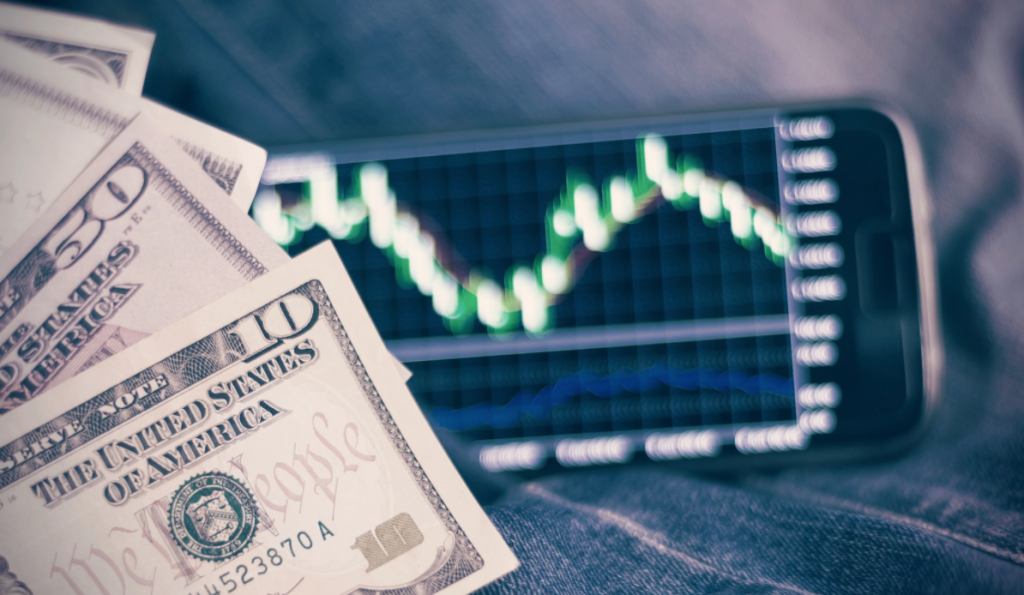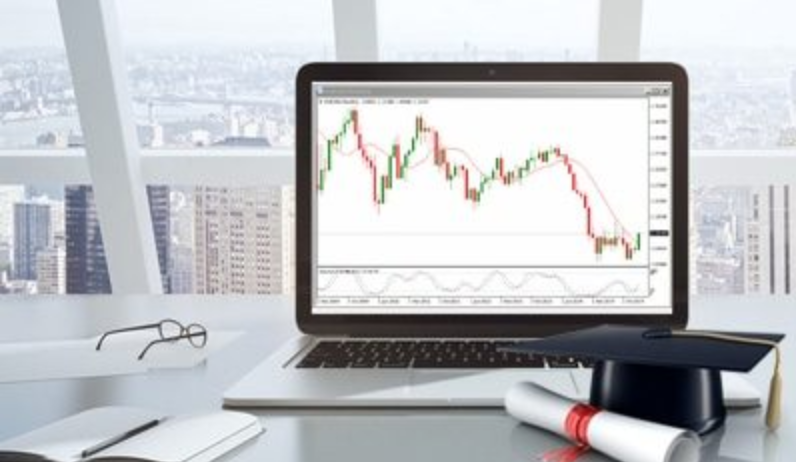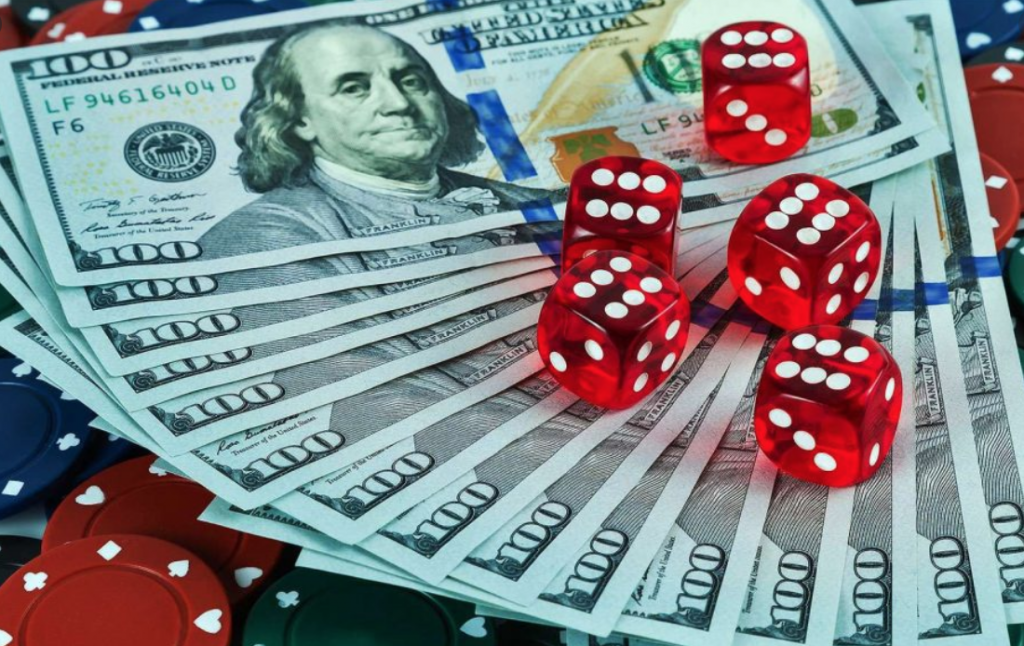The world of Forex Trading is commonly misunderstood, with many unaware people who are not entirely sure what forex actually is, or stands for. If you are familiar with what forex is, then you may be surprised to hear that there are those out there who believe that forex is gambling!
So, is forex gambling? The short answer is NO, forex trading is not gambling, however, there are certain aspects of forex trading that may resemble gambling to some. It really comes down to the trader and how they are trading, predicting currency swings, and watching trends – if they are trading without proper estimation, then forex may very well be a gamble for them.
Why forex is not gambling is a statement that must be explored a bit more if you want to understand; in this post, I’ll go over some of the various ways that forex is gambling and why forex is not gambling.
Table of Contents
Is Forex Trading Just Gambling?

Alright, to first delve into the question of forex trading vs gambling, let’s go over what forex trading actually is.
Here’s a summarized description of forex trading straight from the forex authority websites BabyPips and The Balance:
- Forex, short for foreign exchange, is a global market where currencies are traded with one another.
- It is the most heavily traded in the entire world (a volume of over 5 billion a day).
- The demands and economic status of different nation’s currencies result in varying levels of value.
- These shifts in currency prices are what forex traders try to profit off of.
Similar to the stock market, traders can spend and invest all the money they are capable of spending as they please. If they feel so inclined, they can dump capital blindly, without any type of analysis or thought process – sometimes they might get lucky, sometimes they won’t.
Obviously, this isn’t recommended.
For lots of traders who fail to properly assess and predict swings and trends in currencies, they are essentially gambling.
The definition of Gambling:
1)play games of chance for money, or
2)take risky action in the hope of a desired result
Considering the definition of gambling, is forex trading just gambling?
If gambling can mean taking risky actions with the hope of a certain outcome, forex can be considered gambling, depending on who is doing the trading.
Also, no matter how good you are at trading forex, there is a lot of risks involved; the markets are highly volatile, and most traders utilize leverage which can be dangerous.
If a person is uneducated on the forex markets and has no clue what they are doing, and are also placing trades with the hopes of making some coin, they are by definition gambling.
Many novice forex traders bring emotion and or feelings of luck into trading, which many people bring into gambling as well, which will not work.
However, gambling is not in the DNA of forex trading – most of us, especially the ones who are successful, are not gambling when we are trading forex.
Forex trading is a long game (at least it is for us professional/full-time traders), whereas gambling is not.
All you need to do is take the time to learn and implement the proper strategy in order to make it less of a hobby (or money pit) and more of a job.
Is Forex Trading Like Gambling?
Is forex gambling?
Not really.
Is forex trading like gambling?
Sure, maybe.
Forex trading can be like gambling in a lot of ways.
However, while I don’t know a lot about gambling, I’m pretty sure I can go as far as saying there isn’t much strategy involved.
So yes, while forex trading can be like gambling, forex trading involves strategy, analysis, and technique that most gambling does not require.
Forex Trading vs Gambling

Let’s examine the similarities and differences between forex trading and gambling.
Forex Trading vs Gambling: Similarities
- High risk involved
- Unpredictable or unexpected outcomes
- Sometimes leaving results to chance
- Occasionally lots of money involved
- Potential for great wins
Forex Trading vs Gambling: Differences
- Gambling is a game of chance
- Forex Trading is centered on financial market performance
- There is a learning curve for forex trading
- There is no learning curve in gambling
- Forex trading involves many technical tools that allow you to estimate outcomes
- Forex trading can be a full-time career
These are only some of the most basic similarites and differences of gambling vs forex – obviously, the lists are endless.
Is forex gambling?
This is the point is: forex is not gambling.
Why Forex Is Not Gambling

Those who are addicted to gambling typically have the belief that their next bet is the winner – this false optimism is what leads them into bankruptcy and debt, with them hoping that the next gamble will result in money and riches.
Unfortunately, forex trading can be the same – a lost trade is just as painful, and many traders will enter more positions in order to try and win back the money they just lost. This is a painful cycle that only results in money lost.
In both gambling and forex trading, a recent string of wins can inspire the trader/gambler with a false feeling of security – this only leads to more loss, as it is typical that recent wins or favorable positions have no effect on future trades or gambles.
The only way to ignore this false sense of security is to approach every position or game with the viewpoint of a loss – to understand that there is a chance that you may lose.
So, why is forex not gambling?
Forex is not gambling because there is a learning curve!
This is the main reason that separates forex from gambling. Not only can you learn forex trading and develop new strategies and approaches, the more you trade, the better you get.
Gambling is something else entirely – when you gamble, you are placing you money in the hands of chance.
While the forex markets can be unpredictable at times, they can be anticipated and you can get better at predicting how a certain currencies value will move.
Financial markets do not act out of change; they move and change due to a variety of factors, ranging from small-scale to national economic news, and these factors are events that forex traders have the benefit of analyzing.
To compare gambling to forex trading is an incredibly oversimplified comparison, and upon deeper inspection the differences between the two outweigh the similarities.
In other words, this is why forex is not gambling.
To become a successful trader is to learn and master your approach to trading currencies – as far as I know, there is no such thing as a successful gambler, or else it wouldn’t be ‘gambling’ at all.
Forex Trading Vs Sport Betting

Yep, if forex trading vs gambling isn’t enough, I’ve even seen people comparing forex trading vs sports betting.
While there are similarities between forex trading and gambling, there are even fewer similarities between forex trading and sports betting.
To be fair, they can be likened to one another in a couple ways – in both sports betting and forex trading, you are betting on an outcome in order to (hopefully) make profits.
With sports betting, you are predicting that one team wins over another, or something of the sort.
With forex trading, you are banking on shifts in market volatility that will make you money – the goal here is for the currency prices to change in relation to another so that you make profits off of these shifts in currency value.
Another similarity is that both forex trading and sports betting
The main difference between sports betting vs gambling is what determines the outcome.
In forex trading, shifts in values of currency pairs come from factors such as:
- supply and demand
- economic news
- national events
In sports betting, you are betting on people. Unfortunately, people do not act the same way markets do, and you really are leaving it up to chance – this isn’t to say that you can’t make educated estimations with sports betting, because you can, but when you are placing your money on how certain teams or people perform athletically against one another, this is mcuh different than putting money in the financial markets.
While sports betting can certainly be profitable, I can confidently say that forex trading is much more predictable and ‘learnable’ than sports betting is.
Final Words: Is Forex A Gamble?

Yep, forex trading can be a gamble.
Especially when it comes to short-term, the markets can act very random and it can seem as though to bet on them (or try and make any sort of profits from market changes) is an act of gambling.
However, when you look at the bigger picture, your odds of winning at forex trading is heavily based off of your skill and your skill alone.
You cannot ‘learn to gamble’, but you can learn to trade forex.
The better you get at forex trading, the less you will lose and the more money you will win.
And, just to throw it in there, the profits you can make just from trading forex can be substantial.
Learn to Trade Forex

If you are willing to put in the time that is required to become a good (or at least decent forex trader), then it can be a very lucrative career or side hustle.
Not to mention the benefits of trading forex as a full time job are endless as well, such as being your own boss, unlimited earning potential, set your own hours, etc.
For those who want to learn how forex works and how you can make profitable trades every single day, go read our Forex Mentor Pro Review – a mentorship program that will take you from beginner to pro forex trader ASAP.
Also, if you haven’t already, make sure to grab your Free Forex Trading Fortunes PDF – get a copy sent straight to your email below.
[convertkit form=1499651]Is Forex Gambling?
Forex trading can be a bit of a gamble if you aren’t assessing your trades properly, however the difference between forex and gambling is that with forex, you can learn and get better – gambling is only a game of chance.

I’m a full-time forex trader, happily making money from the comfort of my own home.
I help others find financial freedom and success with forex trading.
